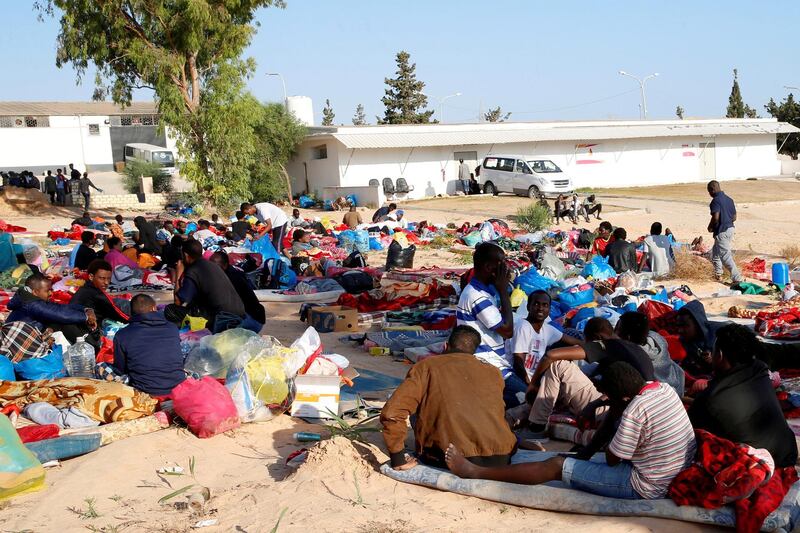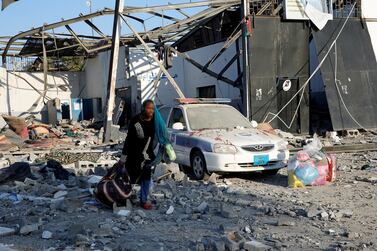Fighting near the Libyan capital of Tripoli must stop and the country’s various factions must return to the UN-mediated political process, the UAE, US, UK, Egypt, France and Italy have said.
They insisted there was no military solution to Libya’s problems and that the conflict risked destroying the country’s vital energy sector and worsening the Mediterranean migrant crisis.
In early April, forces loyal to Field Marshal Khalifa Haftar launched an offensive on Tripoli from their eastern stronghold, vowing to oust the militias and extremist groups they say run the capital.
The statement by the six countries said the violence has killed almost 1,100 and displaced more than 100,000.
Sanctioned individuals have also joined the conflict, while ISIS released a number of videos appearing to show a limited resurgence.
“We need to re-energise UN mediation, which aims to promote a transitional government representing all Libyans, prepare for credible parliamentary and presidential elections, enable a fair allocation of resources and advance the reunification of the Central Bank of Libya and other Libyan sovereign institutions,” the statement by the six countries said.
They also said they “fully support” the work of the UN envoy Ghassan Salame and that an effort to stop any arms shipments, which have been happening in some cases in a fairly public way, and to protect Libya’s oil resources was needed.
“We note our deep concerns about the ongoing attempts by terrorist groups to exploit the security vacuum in the country, call on all parties to the Tripoli conflict to dissociate themselves from all such terrorists and individuals designated by the UN Sanctions Committee, and renew our commitment to see those responsible for further instability held accountable.”






